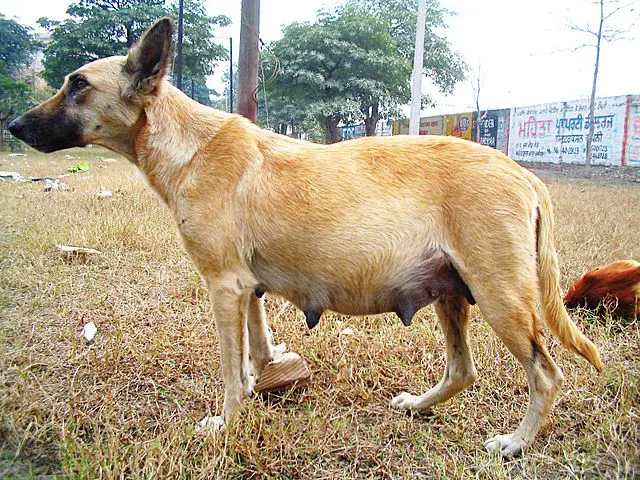A domestic horse may live for 25 to 33 years, whereas a horse’s physical prime is about ten to fifteen years. This age is significantly higher than that of most domesticated animals. Sugar Puff, a horse who lived to be 56 years old, held the record for the oldest reported age of a horse in recent years.
Your horse’s lifespan is influenced by a number of factors:
- Size
- Genetics
- Breeding\sCare
While some of these variables are beyond your control, appropriate horse care is critical to your horse’s longevity.
Can Horses Live to be 40?
Yes. Horses may live to reach 40 years old with good care, although this is considered severe old age. A horse achieves the equivalent of a 100-year-old person at the age of 36. So, if your horse survives to be 36, give yourself a pat on the back for being such a wonderful horse owner. There are now approximately 300 horse breeds in the globe. Larger horses, on average, have shorter lifespans. Other characteristics, such as type of job and susceptibility to disease, might alter a breed’s lifetime. According to the Human Society, the following percentages of horses survive for more than fifteen years:
- 57% of Morgans
- 52% of Arabians
- 30% of Quarter Horses
- 25% of Saddlebreds
- 15% of Painted horses
- 15% of Standardbreds
What Breed Of Horse Lives the Longest?
According to the American Morgan Horse Association, Morgans live a long time because they are not genetically prone to sickness like other breeds, don’t suffer leg issues, and are easy to care for. Wild horses, such as mustangs, have lower lifespans than domestic horses, according to Live Science. This is most likely due to the lack of care given to domesticated horses. Wild horses have been known to live for up to 36 years, which is a very long time for a horse.
How to Determine a Horse’s Age
According to the University of Missouri, a horse’s age may be determined by looking at its teeth. The following are four ways to detect if your teeth are in good shape:
- The presence of permanent teeth is determined by the following factors: The number of permanent teeth can be used to determine one’s age. By the age of five, a horse usually has all of its permanent teeth.
- Cups fade away: By the age of six, the cups in the lower jaw’s centres are worn quite smooth. By the age of fifteen, cups had totally vanished.
- The angle of incidence: in older horses, the incisors appear to slant forward and outward.
- The surface form of the teeth: Depending on the horse’s age, the surface of their teeth might alter considerably.
How Old is a 32-year-old Horse in Human Years?
Horses age more quickly than humans. As a result, a 32-year-old horse is comparable to a 90-year-old person. That’s an elderly stallion. You must be doing something right if your horse is still going strong after 32 years.
Why Horses Are Living Longer
Horses are living longer because of considerable advancements in horse health and treatment in recent years. Horses have a higher chance of living a long life if caregivers and veterinarians provide better care. Horse dental care is one of the most important reasons they live longer because it increases the life of their teeth, allowing them to eat better. Horses cease eating as they become older for a variety of causes, including abscesses and persistent mouth discomfort. You may avoid abscesses and tooth loss by taking care of your teeth.
How to Provide a Long and Healthy Life for Your Horse
There are several things you can do to help your horse live longer. While these behaviours can help your horse’s health, they won’t be able to avoid damage or some illnesses. According to Equus Magazine, when a horse’s teeth are poor, its health soon deteriorates. Abscesses and persistent discomfort from bad teeth make it difficult for your horse to eat. These issues diminish the number of calories and nutrients consumed by the horse each day, shortening its longevity. Because horses are grazers by nature, it’s critical to feed your horse frequently and in modest amounts. Allow your horse to graze on pasture grass or alfalfa hay with long stems. This will help your horse live a longer life.
Unless your horse is pregnant or nursing, you’ll want to keep a strict healthy diet and avoid feeding your horse treats such as:
- Oats
- Corn
- Apples
- Carrots
According to the Rutgers Agriculture Department, these snacks should be given in moderation, with each dish weighing no more than one to two pounds.
To replicate a grazing pattern, feed your horse three times a day at the very least. Slow feeders also encourage eating tiny quantities throughout the day. Vaccinations for your horse should be kept up to date. Current horses are susceptible to a variety of ailments that might shorten their lifespan. Maintaining frequent veterinary visits and being current on your horse’s vaccines is the greatest approach to avoiding disease.
Horse Vaccinations prevent several illnesses that can harm your horse. Horse vaccines can prevent:
- Tetanus
- Herpesvirus
- Encephalitis
- Influenza
- Rabies
- Potomac Horse Fever
- Botulism
- Streptococcus Equi-Infection
- Rotavirus
- Equine Infectious Anemia
Unfortunately, vaccinations cannot control all illnesses. Some illnesses that can shorten your horse’s life are:
- Colic
- Laminitis
- Thrush
- Abscesses
- Arthritis
Regularly Exercise Your Horse
Horses, like people, need to stay active in order to have a long life. The exercise does not have to be strenuous, but it should be done on a regular basis. The International Federation of Equestrian Federations recommends:
- Five times a week, for at least twenty to thirty minutes, lunge or long rein.
- Fitness may be gained via hacking or trail riding.
- Hill work is a great way to build muscle strength.
- Short bursts of high-intensity canter followed by walking are used in interval training.
Horses are herd animals who thrive when they are surrounded by other horses and their caregivers. Horses require the company of other horses. If you don’t have more than one horse, you’ll need to figure out how to get your horse to interact with others. Allowing them to graze with friendly horses has a significant impact on their happiness. Horses require time with their owners. Spending time grooming, stroking, and talking to your horse has a good impact on their general well-being, which helps them live longer.
Signs of Aging in Horses
Another crucial component of horse care is keeping an eye out for symptoms of age. Knowing these symptoms is essential for caring for your horse as a senior citizen horse, as opposed to a mature adult horse. Because horse breeds mature differently, keep an eye out for the following signs. Older horses have a harder time absorbing nutrients, and as a result, they lose weight and bodily condition. The ability of your aged horse to absorb nutrients is influenced by a number of factors:
- Inefficiency or malfunction of the digestive system
- Reduced digestive enzyme production in the gastrointestinal tract
- Scarring caused by internal parasites
Teeth deteriorate as a horse matures due to wear and strain. Regular dental exams are important for your horse because they may remove troublesome teeth and even out uneven teeth. You’ll notice weight loss, losing food while eating, and a lack of appetite if your horse has dental issues. The ability of a horse to cope with stress decreases as it ages. When your horse is stressed, you’ll observe various changes in his behaviour:
- Appetite loss or thirst
- Refusal to walk or move
- The pecking order has shifted.
- In the winter, shivering, and in the summer, overheating
- Hormone production changes
The immune system of the horse deteriorates as it matures, leaving it more susceptible to many illnesses and ailments. This might be caused by a variety of factors, therefore it’s crucial to take your horse to the doctor for frequent examinations to examine their health. Is your horse’s immune system deteriorating?
How to Look After an Elderly Horse
Horses now have significantly longer lives as a result of significant advances in veterinary treatment, and it is not uncommon for your horse to survive into its 30s. Your horse’s longevity will be influenced by how you care for him, including the use of better veterinary treatment. Equisearch suggests the following while caring for a mature horse:
- Provide nutrient-dense and conveniently accessible nutrition. Due to oral issues, your horse will require a longer time to eat. You should keep hay in easy-to-reach places and feed it separately from other horses so it doesn’t have to compete. If your horse is having trouble eating, consider switching to a designed senior feed or supplementing their diet.
- Keep an eye on your horse’s hydration. To do so, look into the animal’s mouth to see if it’s still wet.
- More shelter should be provided. Older horses require additional weather protection. In the summer, this may entail using a fan to cool the stable. With cooler weather, you may wish to wrap your horse in a blanket.
- Show caution when vaccinating. As your horse ages, its immune system struggles and can have adverse reactions to vaccines. If your horse has strong reactions to the vaccines, you may want to keep your horse away from other horses to reduce exposure to infections and diseases.
- Regularly deworm your horse. Depending on your locality, you should deworm your horse every 60 days and treat him for tapeworm every two years.
- Examine your horse’s teeth on a regular basis. If your horse has difficulty chewing, it is most likely due to dental issues. Take them to a veterinarian for treatment. You may lengthen your horse’s longevity and enhance its quality of life by following these senior horse care suggestions.
Caring for Your Horse Will Extend Its Lifespan
You may help your horse live longer by following these suggestions. It’s critical to look after your horse’s social, physical, and health requirements. You might consider adding a nutritional supplement to your horse’s diet to offer sufficient nourishment.
Rogue Pet Science creates all-natural pet supplements and vitamins with only proven components to help your horse’s overall nutrition and intestinal health. Rogue Pet Science’s Origins Equine 5 in 1 supplement is a natural, highly digested, and nutritional supplement that can help your horse live longer.






